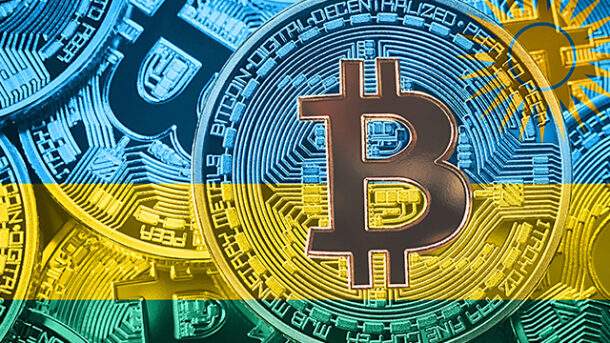Crypto asset regulation in Rwanda is a topic of growing importance. As the global financial landscape evolves, many countries are grappling with how to adapt to the rise of crypto assets, and Rwanda is no exception.
In this article, we will delve into the current state of crypto asset regulation in Rwanda, exploring what is allowed, what is prohibited, and the government’s approach to digital currencies.
The Legality of Crypto Assets
At present, Rwanda takes a strict stance on crypto assets. According to the National Bank of Rwanda (NBR), “anyone who gets involved in the business of buying and selling digital money does so at their own risk.” In essence, this means that while crypto assets are not explicitly banned, the government and the central bank don’t provide any protections or guarantees to individuals involved in crypto asset transactions. The absence of legal backing means that anyone dealing with crypto assets in Rwanda is essentially on their own.
In terms of safety, Rwanda ranks relatively low in the world of crypto assets. According to a safety ranking by Cointobuy, Rwanda scores a mere 0.9 out of 10, positioning it at 238 out of 249 countries assessed for crypto asset safety. This low ranking reflects the risks associated with crypto asset activities in the country.
Lack of Regulatory Framework
One notable aspect of the Rwandan crypto asset landscape is the absence of specific regulations governing digital currencies. The country has not enacted any legislation or policies dedicated to the use and trade of crypto assets. This regulatory vacuum can leave investors and users exposed to various risks, and it creates uncertainty around the legal status of crypto assets.
Central Bank’s Cautious Approach
While the government hasn’t explicitly banned crypto assets, the National Bank of Rwanda (NBR) has taken a cautious approach to crypto assets. The central bank has directed all banks in the country to refrain from engaging in any crypto asset-related activities until a comprehensive regulatory framework is established. This move is motivated by the desire to protect users from the potential risks associated with unregulated crypto assets.
Exploring a Central Bank Digital Currency (CBDC)
In recent years, the NBR has shown interest in Central Bank Digital Currencies (CBDCs). The central bank initiated a study to assess the benefits and potential risks of introducing a CBDC in Rwanda. The research considers how a CBDC could provide a secure, free, and straightforward cash alternative for Rwandans. This move aims to promote financial inclusion and facilitate participation in international trade for both the government and private companies. The study also examines potential implications related to conversion issues and technological readiness.
Regulatory Challenges and Opportunities
The regulatory challenges and opportunities regarding crypto assets, decentralized finance, and blockchain technology in Rwanda revolve around the ongoing CBDC feasibility study. The results of this study will be instrumental in determining whether Rwanda embraces CBDC implementation, potentially revolutionizing the financial landscape.
In the meantime, the NBR’s cautious stance remains, and regulated financial services providers are barred from facilitating crypto asset transactions until a robust regulatory framework is in place. Despite these restrictions, Rwandan residents continue to trade digital assets, such as Bitcoin, indicating a strong demand for crypto assets in the country.
Harnessing Blockchain Technology
Rwanda is not only exploring digital currencies but also harnessing the potential of blockchain technology for various applications. One prominent example is the use of blockchain to create a transparent supply chain for tantalum, a metal used in consumer electronics. This initiative aims to address concerns related to conflict minerals and ensure ethical sourcing, thereby promoting transparency and accountability within the supply chain.
Additionally, the government of Rwanda is partnering with organizations like Medici Land Governance (MLG) to develop a blockchain-based land transaction platform called Ubutaka. This project aims to transform land transfers into a paperless, secure process by integrating blockchain with Rwanda’s existing land registry infrastructure.
The Future of Crypto Asset Regulation in Rwanda
Rwanda’s approach to crypto asset regulation remains cautious and conservative, with the NBR emphasizing the need for a robust regulatory framework before permitting crypto asset activities. The study of CBDCs and the continued use of blockchain technology for various applications showcase Rwanda’s commitment to embracing innovation while safeguarding users and the country’s financial system from potential risks.
In conclusion, while the use of crypto assets remains in a legal gray area in Rwanda, the government is actively considering the introduction of a Central Bank Digital Currency. The results of this endeavor will significantly influence the country’s regulatory landscape in the future. As crypto assets continue to gain popularity globally, Rwanda’s approach to regulation and technology adoption will play a crucial role in shaping the country’s financial future.




